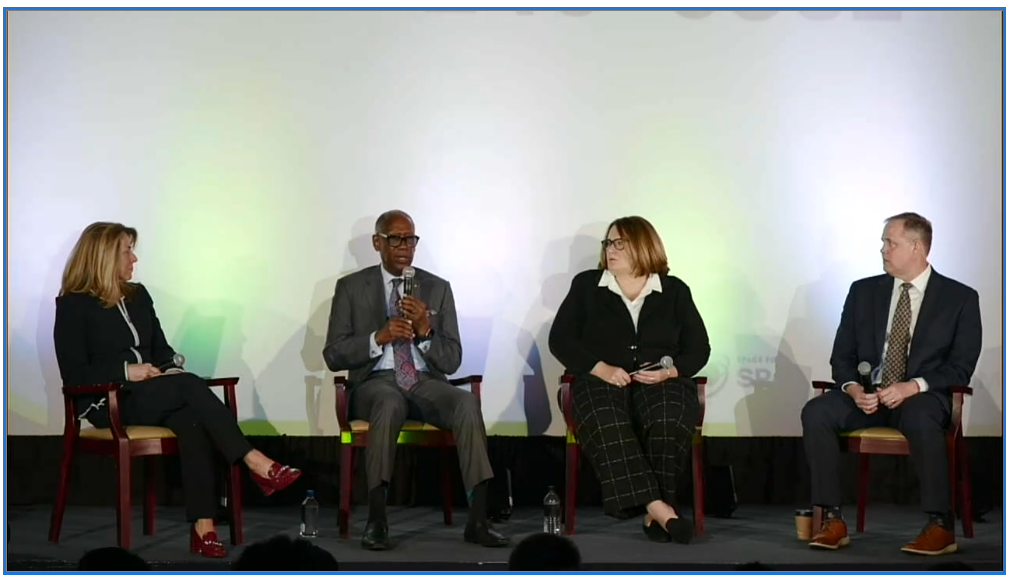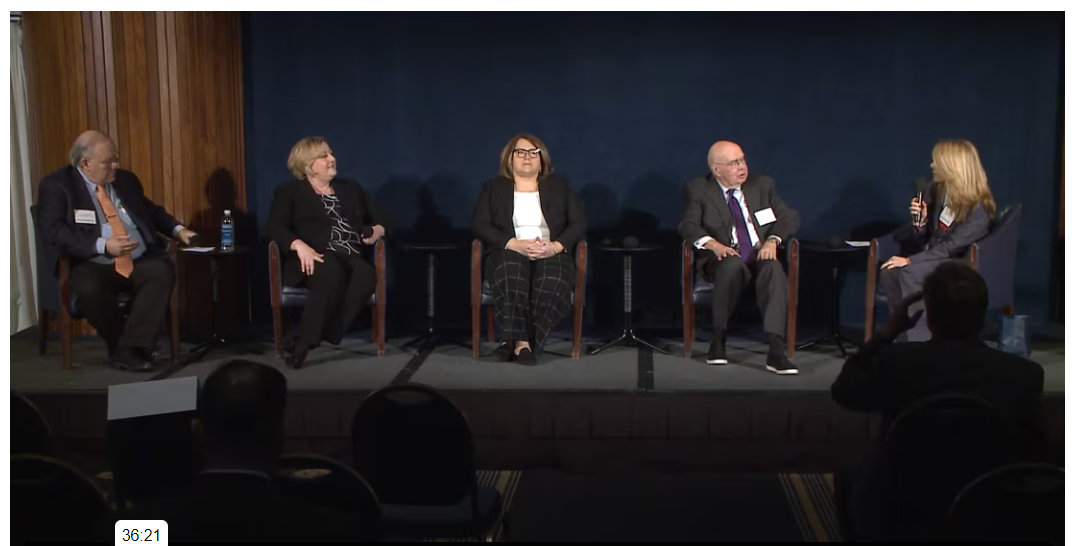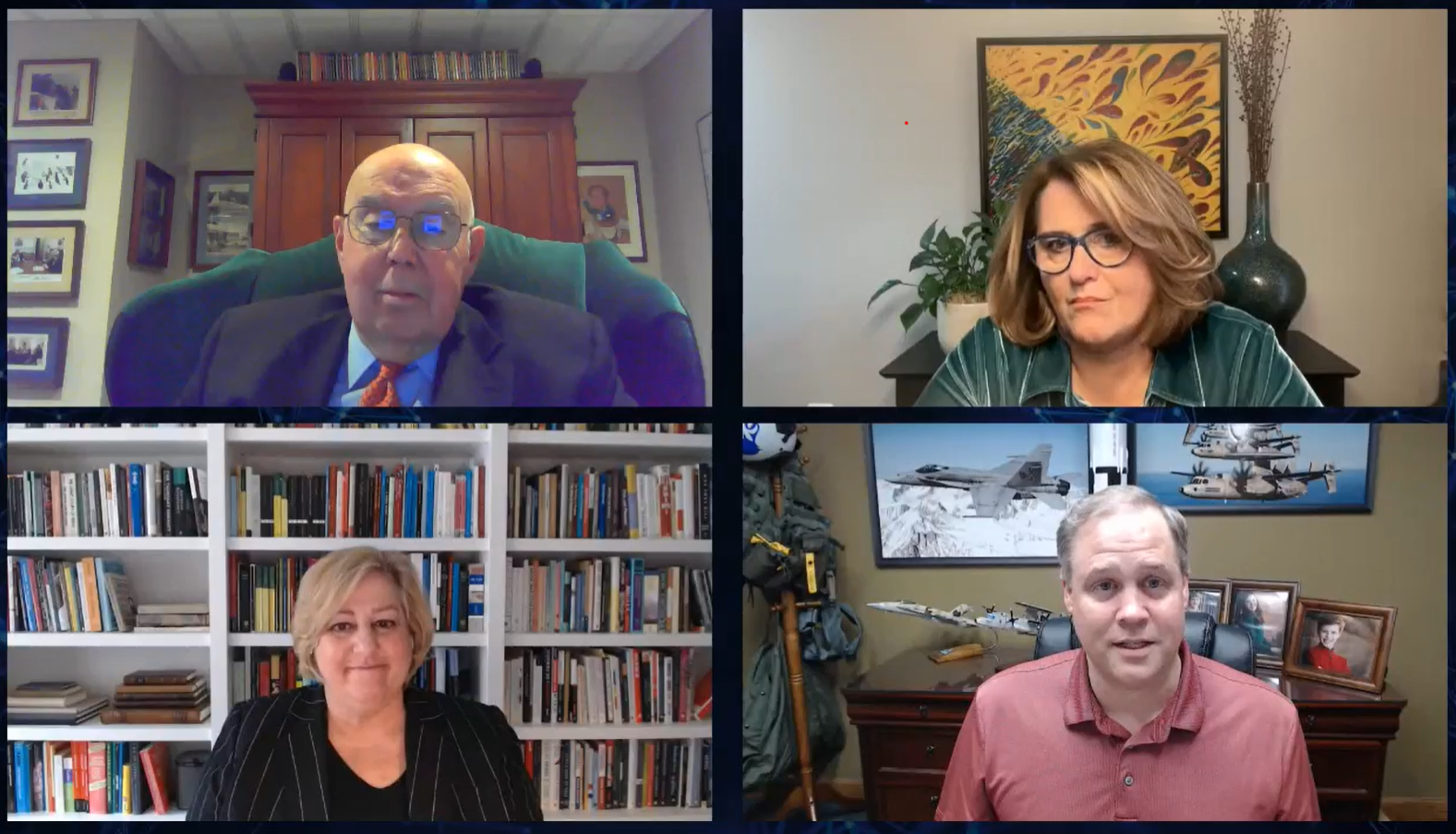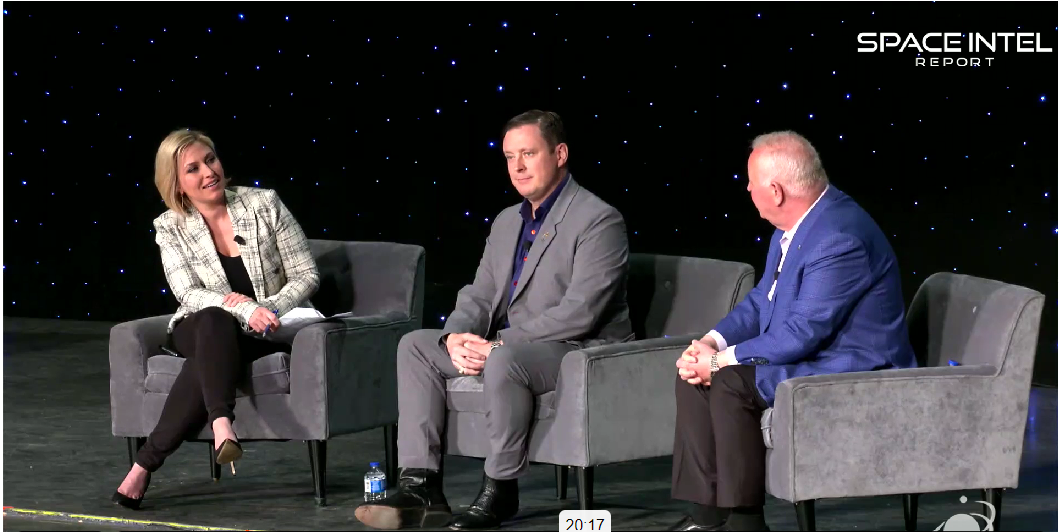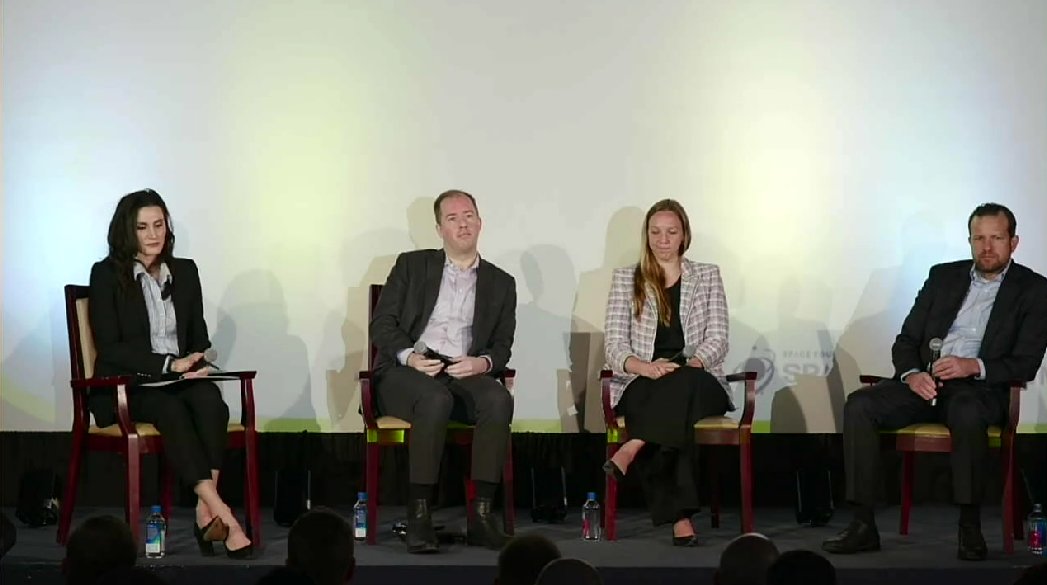Space Matters: ‘It’s Time to Make a Decision’ About Commercial Space Regulation, Panel Agrees
Originally aired on: January 10, 2024
A White House proposal to divide authorization for commercial space missions between the departments of Transportation and Commerce is drawing mixed reviews on Capitol Hill and among commercial business leaders.
In the newest episode of Space Foundation’s Space Matters, former NASA Administrator and U.S. Rep Jim Bridenstine, former U.S. Rep. Bob Walker and Patricia Cooper, president and founder of Constellation Advisory, LLC, discuss the White House’s Authorization and Supervision of Novel Private Sector Space Activities Act, concerns and expectations from stakeholders and limitations in Congress that could stall the proposal.
The Space Matters legislative experts said concerns over the draft bill could outweigh its positive aspects. The legislation was released in November by the National Space Council.
“It’s hard to make the regulatory environment even more convoluted, and they’ve managed to do it,” Bridenstine said. “Dividing it up even more is not the right approach in my view.”
Complex Regulatory Environment
Cooper acknowledged that with rapidly developing space systems and technology, federal regulators in the Office of Space Commerce, the National Oceanographic and Atmospheric Administration and the Federal Aviation Administration have been flexible and creative in handling missions for communications and Earth observation. But there are new areas, such as on-orbit servicing and human spaceflight, that are advancing faster than existing regulations. And in some areas, NASA brings expertise that other agencies do not have.
“This has been an interesting conversation for over a decade,” Cooper said. “…I’m not the only one who’s dismayed that we’re still talking about this, that we haven’t come to an agreement of who should do what. It’s just time to call it, to make a decision.”
As a lawmaker, Walker helped craft legislation to create the Office of Space Commerce. When the original legislation was written, he said, lawmakers recognized a larger pattern of decision-making would be needed.
“We’re at that point right now,” he said. “We’re finding lots of ideas, lots of potential missions that need understanding.”
All Parties Bear Blame
Bridenstine credited the Biden administration for pushing for a regulatory framework for authorization. He laid some blame in Congress, saying parochial concerns have kept lawmakers from passing similar legislation. Some space business leaders, he said, also have worked to stall proposals that would assign federal oversight.
“The commercial sector is against any type of authorization because they see it as regulation,” he said. “Non-authorization carries more of a risk than authorization and regulation, and I say that as a conservative Republican. We need it to capitalize the market, but there are individuals who have their own money and don’t need to capitalize the market. It’s hard to get those individuals to understand sometimes, from a regulatory standpoint, we need to do things that aren’t just in the interest of one or two or three people.”
Amid congressional gridlock that has stalled the 2024 federal budget, the Space Matters panelists believe getting the space legislation passed will be difficult at best.
For more on this topic, watch for the Jan. 23 release of The Space Report. Contributing writer Courtney Stadd offers additional analysis on the draft legislation.
RELATED VIDEOS
MOST RECENT VIDEOS
Symposium Highlights
Late Breaking News: Intuitive Machines Live from Space Symposium 2024
Originally aired on: April 11, 2024
Space Investment Analysis
Symposium Highlights
Space Investment Analysis: Live from the 2024 Space Symposium
Originally aired on: April 8, 2024
Space Matters
Symposium Highlights
Space Matters: Live from the 2024 Space Symposium
Originally aired on: April 8, 2024



